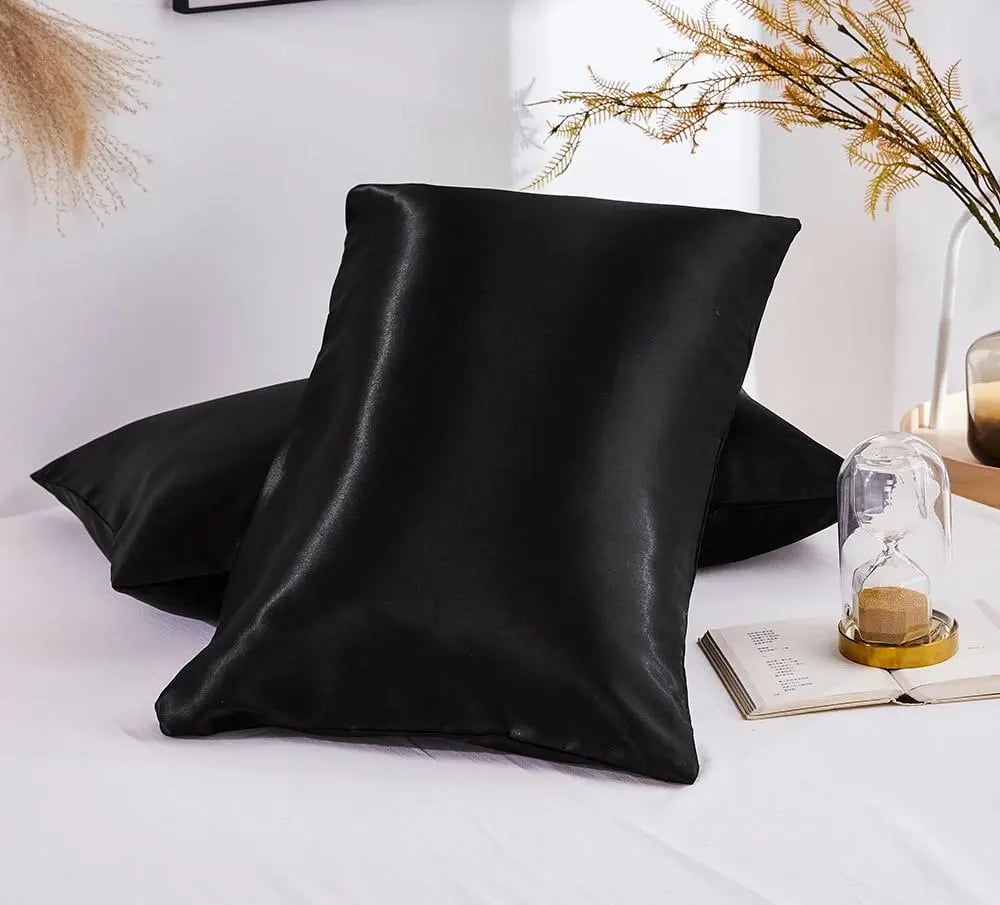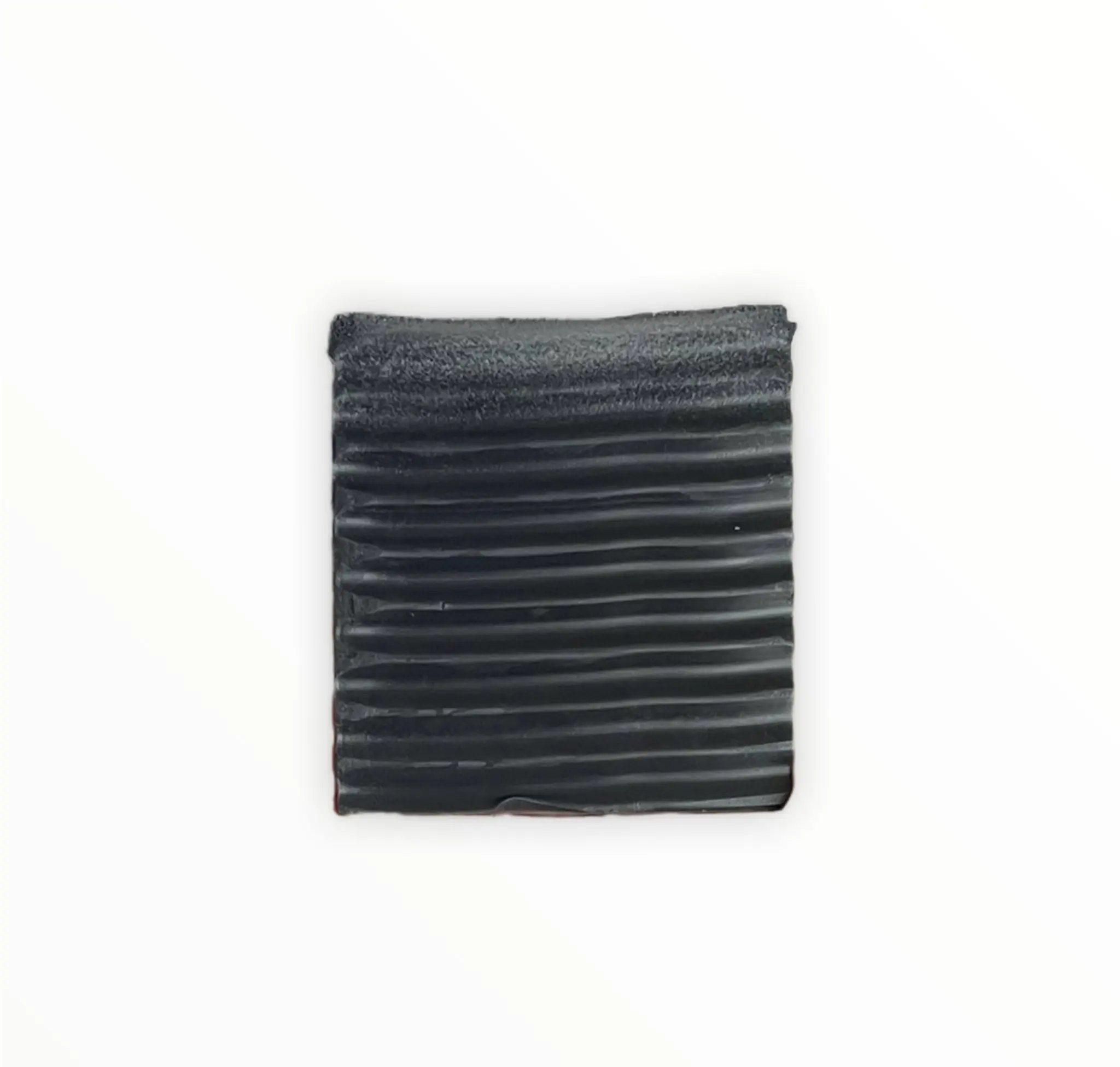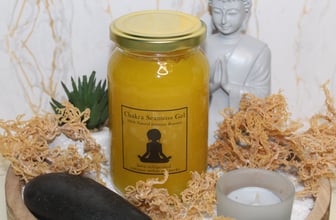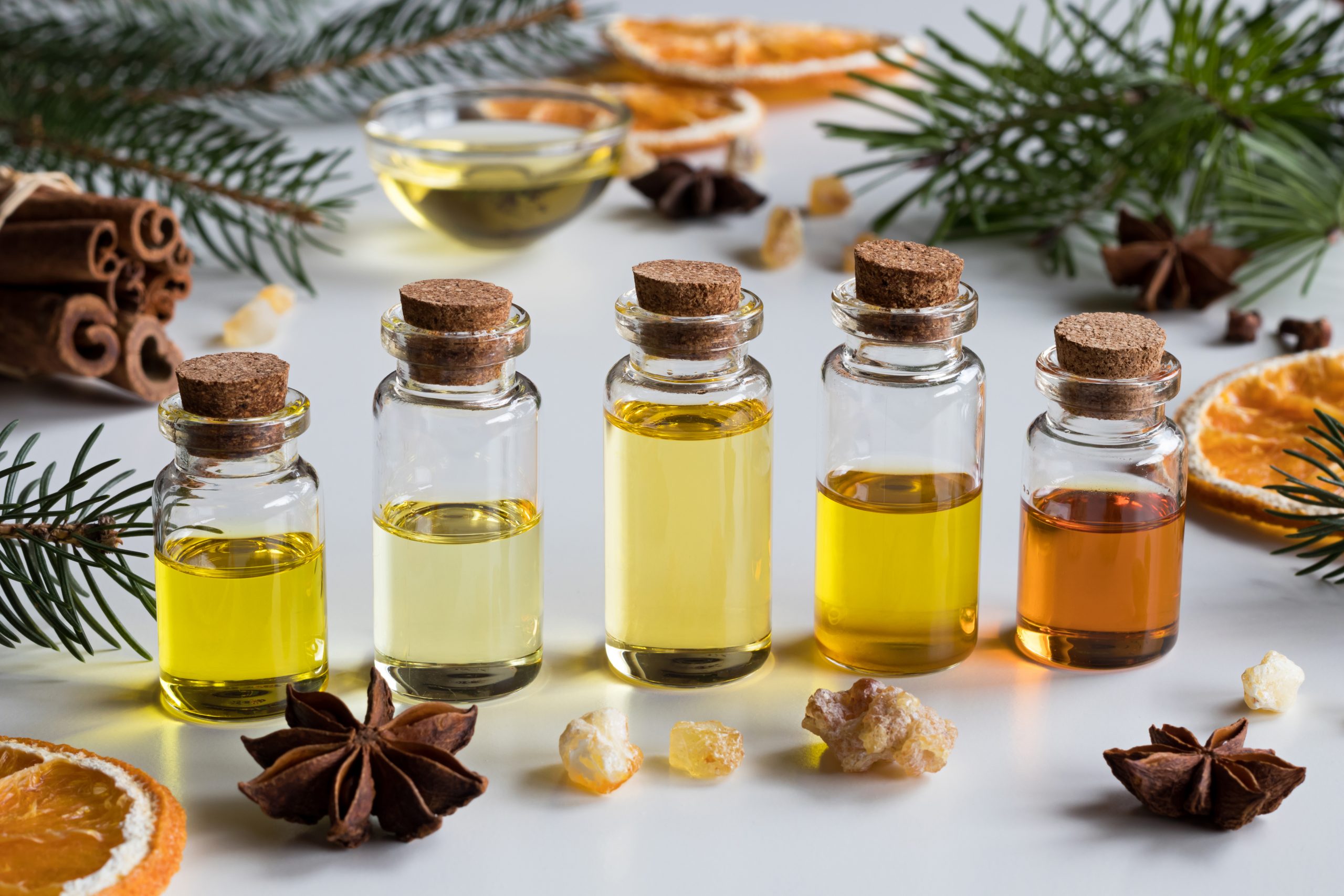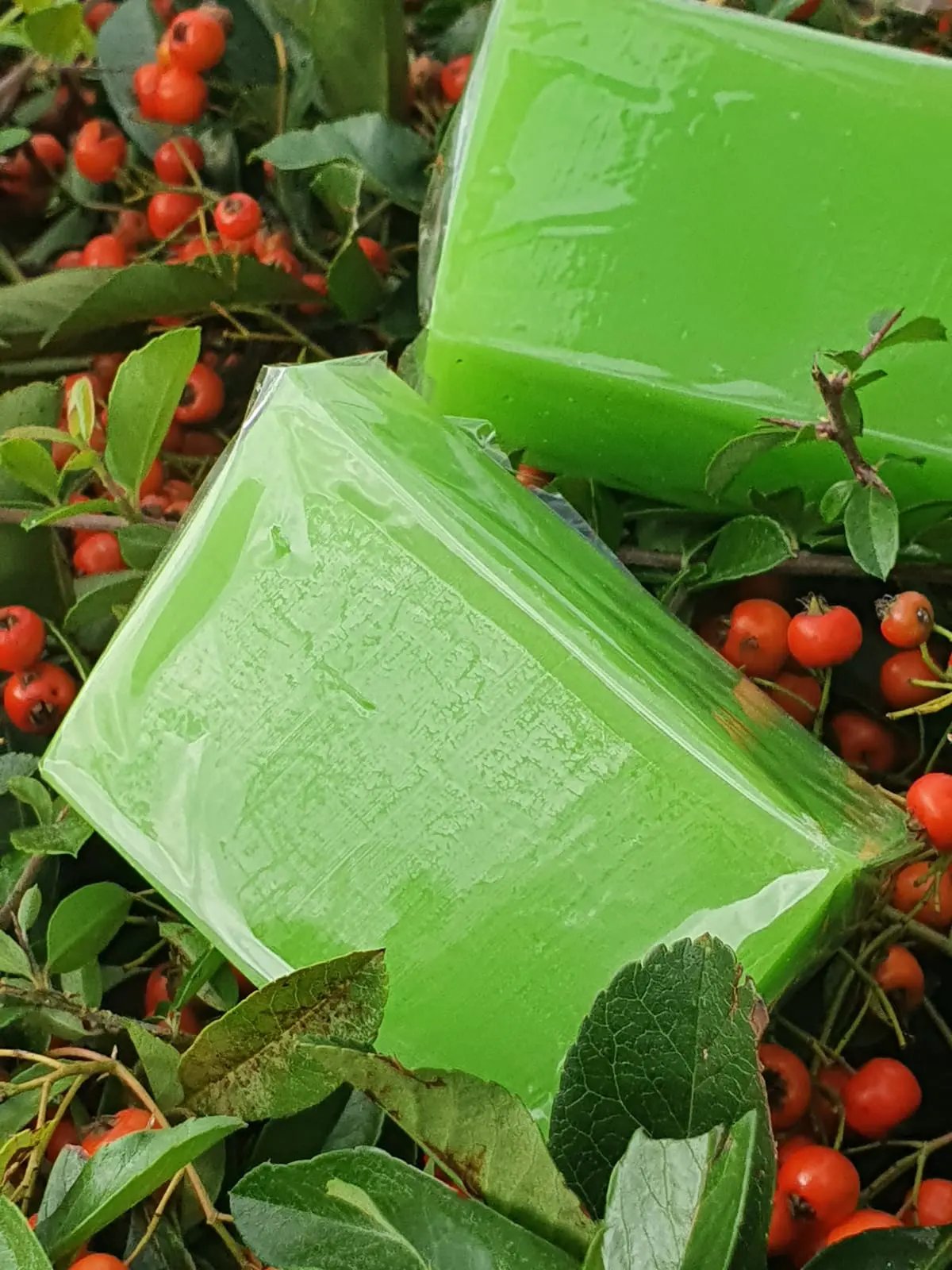
Whether it’s to wash your hair, body, or hands, soap is an essential product which we all use every day. But have you ever stopped to think about what exactly is in that bar of soap you’re using?
Soaps typically contain some form of oil or fat, water and lye (an alkali solution). Most modern soaps will also include fragrances, both natural and synthetic, and some form of antibacterial ingredient. Particularly in mass produced soaps, they will include ingredients to increase the shelf-life of the product. Alternatively, handmade soap companies use natural and often organic ingredients to create their soap bars.
But is there really a big difference between handmade and commercial soap? Luckily for you, we’ve put together this guide on the major differences between these two types of soap to help you make more informed choices.
What is commercial soap?
When we talk about commercial soap, we’re referring to the soaps you’ll very easily find in your local supermarket or corner shop. These types of soap are mass produced and made of synthetic colourants, fragrances, preservatives, detergents, and lathering agents. They’re usually pretty affordable and easily accessible, but these synthetic ingredients can have detrimental side effects.
What is handmade soap?
Exactly like how it sounds, this is soap that has been handmade – usually in small batches by independent producers. Oftentimes you’ll find handmade soap labelled as natural soap as it is made from natural ingredients like olive oil, coconut oil, and goats milk. Handmade soaps will often feature extra add-ins like essential oils (eg. lavender oil and tea tree oil) to naturally fragrance the bars.
It is important to note that even soaps labelled as natural and handmade won’t be 100% chemical-free. Homemade soaps will contain glycerin and sodium hydroxide (a.k.a lye). Glycerin is a humectant which will prevent your skin from drying out while lye triggers the saponification process that turns your mixture into a solid soap bar.
If you want to try using handmade soap, you can either buy them from handmade soap companies or try your hand at soap making. Creating your own homemade soap isn’t as difficult as you might think, but it can be a bit messy.
Now that you understand how handmade and commercial soap work, let’s have a look at their key differences:
Ingredients
One of the key differences between commercially made and handmade soaps is their ingredients list. Conventional soaps are typically made of harsh detergents, synthetic ingredients, and skin-irritating fragrances. Even if you try checking its ingredient list, you’ll have a hard time making sense of any of it.
Next time you’re holding a bar of commercially made soap, look through the ingredients list and count how many of those you immediately recognise. You’ll probably only be able to count them on one hand, with the rest of those ingredients leaving you scratching your head.
Soap that has been handmade is more likely to contain natural ingredients such as shea butter, cold-pressed olive oil, and coconut oil. These ingredients won’t just prevent skin irritation and dryness, they’re actually nutrient-rich and incredibly skin-nourishing. Essential oils are also used to give the natural soap a lovely scent. These oils, when expertly mixed, are significantly less likely to irritate your skin compared to synthetic fragrances.
Effect on skin
You’ll also notice a difference in how these soaps affect your skin. Commercial soap will tend to dry out your skin after long-term use. This is because they tend to contain ingredients that are very harsh on the skin, like sulphates, artificial fragrances, and other chemical-based detergents.
Handmade soaps won’t irritate your skin as much and can actually help to nourish it. Natural soaps are proven to have a higher level of antioxidant activity compared to mass produced soap. Oils and milks are also frequently used for soap production as they have the saturated fat content needed to produce a foamy lather as well as the unsaturated fat needed to help moisturise and nourish the skin. If you tend to have dry skin, try switching your normal soap bar out for a natural soap like Itofan’s Shea Butter Soap. Its 100% raw shea butter base and natural ingredients will heal dry and damaged skin.
Environmental impact
The synthetic ingredients in commercial soaps won’t just harm your body, but they can also harm the environment. Most commercial soap you’ll find will contain foaming agents like SLS and SLES, which can pollute water sources. Another common ingredient in conventionally made soap is palm oil, an oil notorious for its unethical production that leads to mass deforestation. What’s more, many commercial soaps come packaged in single-use plastic, which creates unnecessary waste and can take centuries to break down in landfills.
Handmade soaps that are made of organic ingredients are even more eco-friendly as they don’t contain any harmful pesticides and chemicals. Even the lye used during the soap making process has a low environmental impact, and is actually a byproduct of the chemical industry. You’ll also have an easier time finding natural soaps that use biodegradable and/or recycled packaging. If you want to put together a more eco-conscious shower routine, handmade soaps are definitely your best bet.
Safety
If you’re using something everyday, you would want it to be 100% safe to use. The same applies to soap, especially since it’s coming into direct contact with your body. The chemicals and artificial ingredients found in commercial soap can strip your skin of its natural oils, which protect and lubricate your skin. Without these oils, you may start to develop dry skin and even more serious conditions such as eczema. Synthetic soap fragrances also often contain phthalates, which are linked to hormone disruptions and can negatively affect your neurological, reproductive and developmental systems.
Natural, handmade soap is the clear winner when it comes to safety. With natural soaps you’ll often find that most of their ingredients are non-toxic, sometimes even food-grade. Don’t be surprised if you notice that you can find some of these ingredients in your own kitchen. Their mostly chemical-free ingredients list, is bound to produce a handmade soap that’s safe and gentle enough for even the most sensitive skin.
Shelf life
Another major difference between commercial and handmade soap is its shelf life. Commercially produced soap is usually packed with artificial preservatives to increase its longevity, which is why they have a shelf life of 2-3 years.
If you use a soap that’s handmade, you’re going to have to use them up a bit quicker as they’ll have a shorter shelf life of around 8-12 months. This is because homemade soaps use pure, natural ingredients with no preservatives. This may seem pretty inconvenient, but in that shorter time frame you’ll be reaping way more benefits in terms of how it can moisturise, protect, and heal your skin. We think this is a pretty fair trade off.
Which soap should I use?
With all this information in mind, we truly believe handmade soaps are the better option for anybody. They’re gentle and nourishing on the skin, have a lower environmental impact, and are significantly safer to use than mass produced soap.
If you’re still unsure but want to try out using homemade soap, check out this Tea Tree Soap by NJ Natural Face & Body Care. It’s made of 5 ingredients, with its soap base derived from goat milk and coconut oil, while its small size and affordability makes this a no-strings attached purchase. If you’re looking for something with a light scent, this coconut scented soap from Itofan will moisturise your skin while transporting you back to your favourite tropical holiday.
If you’re looking for a safer, more eco-friendly alternative to conventional soap, have a look at our collection of handmade soaps. Whether it’s for yourself or as a gift to a loved one, these natural soaps are bound to put a smile on anyone’s face.


